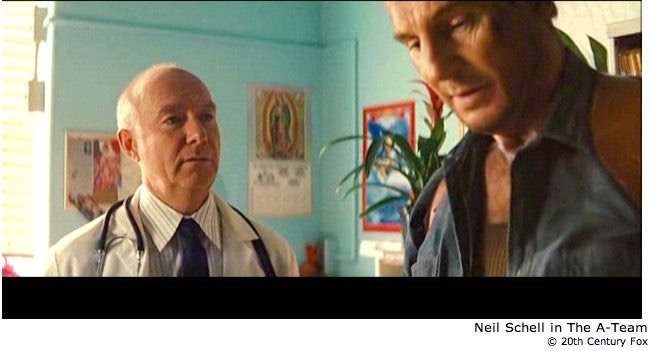PROFESSIONALISM IN ACTING

PROFESSIONALISM IN ACTING by Neil Schell
After having worked as an actor and having cast hundreds of actors in roles, I can count “professionalism” as one of those qualities I look for in an actor. I find it very favourable and will cast one actor over another if I know the one I cast is more of a professional.
First of all, you should be a professional in anything you do. Don’t go half way. Don’t be a dilettante who dabbles. Be a professional.
It’s very simple. When taking on the identity of a professional, your actions demonstrate that identity. Identity overrides actions and attitudes and behaviours with the end result of you being looked upon favourably by those who cast.
I could list out thousands of actions and attitudes that would demonstrate this concept but let’s just look at a few.
COLLABORATION
A professional actor collaborates. That is to say, they are not just there to be a puppet on strings that the director pulls. Collaboration in filmmaking by actors is vital to realising an entertaining story. Those who collaborate really stand out. Those who await instructions and are afraid of making a mistake if they speak up or initiate some sort of addition to a scene are non-memorable and unimpressive.
There is a risk to this, of course. Your ideas might not be accepted. So what? That’s part of the creative process. If you don’t initiate your ideas, even if they aren’t seen to be workable by others, those little idea gems that lie hidden beneath the unworkable one will never get exposed. Taking a rejected idea you originated personally is unprofessional. Your sensitive emotional response to the rejection alters and distorts the creative process and you end up stultifying what could have been a very successful endeavour.
To collaborate is to work with others. Offer up your ideas, use your imagination and speak up when you feel it could work. A good director will most likely go with it if you feel enthusiastic about it and if they don’t they will thoroughly explain why which, when done, will probably shed some new light on either your character or the scene at hand. You win both ways. All directors appreciate collaborative actors.
MANNERS
Manners are interesting and excellent manners are a sign of a real professional. Manners can be defined as the recognition of the presence of another. You see, there is nothing more rude than someone who does not recognise you exist in their space. Think about it. I am sure you have many examples of this in your past.
Walking into an audition room without recognising in some physical way the presence of others is rude. Simple. Not complicated. If you have a fear of meeting new people or you think these people who are auditioning you have some sort of power over you that they can wield and ruin your acting career forever therefore you can’t look them in the eye, you will be acting out something that will reduce your professionalism and therefore your chances of being worked with.
Often a new actor, out of fear or unfamiliarity, may keep quiet in the corner and feel like staying out of everyone’s way. While it is good not to inhibit the crew and director with their work, it can also come across to others like you feel you are better than them and you don’t want to look down and talk to the lowly crew. (I’m exaggerating here…a bit.)
Filming a movie or TV series means working in close proximity with many people. People rub shoulders due to tight spaces or just the shear volume of crew. Manners are the key to keeping things running smooth. Everyone appreciates good manners whether they think they do or not. Excellent manners are the sign of a true professional. Giving someone honest, positive statements about their work. Truly caring about their existence and assistance and contribution helps everyone work better.
Practice excellent manners.
KNOWING YOUR PLACE
By this I mean understanding what filmmaking entails and how you, the actor, fits into the grand scheme of things. You should take a hand at screen writing, understand cameras and lenses, get why sounds can’t be mushed and edit some scenes so matched action gets burned into your brain. When you understand to some degree all of the posts around you on set and even in post production, you start to get an even higher affinity for filmmaking and how you fit into the whole process. Increased affinity and understanding shows the true sign of a professional. It’s the sign of an actor who understands hitting marks and not snapping a book shut while speaking. It’s the sign of an actor who takes the effort in remembering where the items were on the table from the last camera set up and knows how to play to the camera.
Working with an actor like this on set is a joy. The director will notice it and respect you for it. You will be seen as a true professional.
The above three categories are by no means the only ones but they do cover a lot of ground. Of course there are the regular ones of knowing your lines, being on time, keeping your personal problems at home, etc. Most people know and understand these.
When working with stars observe them on set and see what is professional about them. You will soon be the exemplifying professional for others too. And a director and producer are always willing to hire a true professional.
Be a professional.
©️2016 by Neil Schell

